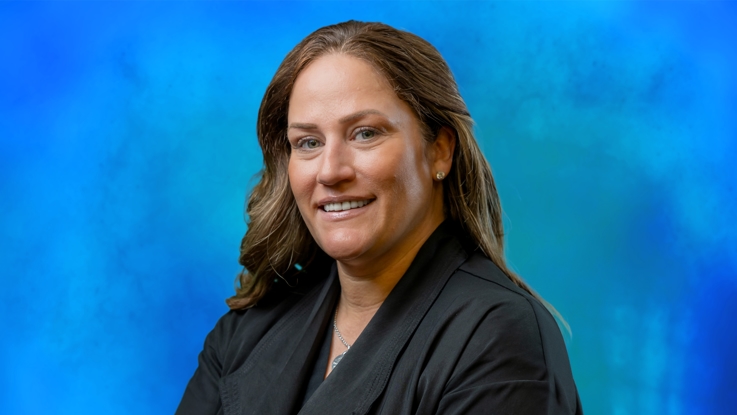Why You Should Talk to a Doctor About Your Painful Periods
- Category: In The News
- Posted On:
- Written By: Kimberly Guillory, MD
Endometriosis, an invasive disease that can cause chronic, debilitating pain and infertility, affects about 1 in 10 women in the United States. Sometimes referred to as an “invisible” disease, the wide variety of vague symptoms caused by endometriosis are often misunderstood and misdiagnosed.
Did you know that it takes 6 - 10 years on average to diagnose endometriosis from the time symptoms begin? Some women deal with extremely painful periods for years thinking it’s normal. It’s only when they begin to struggle with infertility that they seek the help of a women’s health care provider.
An early diagnosis is key to managing symptoms and giving women who suffer with endometriosis a greater quality of life. Endometriosis awareness and education about body self-awareness can help women get the treatment they need sooner.
What is Endometriosis?
Endometriosis is a disease in which endometrial tissue, or the lining of the uterus, grows in patches in other areas of the body. The patches can also be referred to as lesions, implants or nodules and are most often found on the ovaries, fallopian tubes, tissues around and under the uterus, intestines and bladder.
8 Symptoms You Shouldn’t Ignore
About 75% of women with endometriosis experience pelvic pain with their monthly periods. Nearly half of all women diagnosed with endometriosis will experience difficulty getting pregnant (infertility). Other symptoms include:
- Heavy, painful periods that can get worse over time
- Bleeding or spotting between periods
- Pain using the bathroom during the monthly period
- Painful sex
- Pain in the intestines or lower abdomen, or other gastrointestinal problems
- Fatigue.
Are You At Risk for Endometriosis?
Any woman who menstruates can develop endometriosis, but it’s commonly diagnosed in women in their 30s or 40s. There is no known cause for the disease, but some factors can increase your risk, including:
- Family history of endometriosis
- Starting your period before age 11
- Having short monthly cycles (less than 27 days)
- Having heavy periods that last more than 7 days.
Think You May Have Endometriosis?
You know your body better than anyone. If something seems off, it’s time to have a conversation with your OB/GYN. It’s helpful to keep a log of your symptoms and bring it with you to your appointment.
Your provider will ask about your symptoms – this is the time to speak up about your suspicions and share details about anything that doesn’t feel normal for you. The OB/GYN may perform a pelvic exam and may order additional tests such as an ultrasound if needed.
Depending on the findings of those tests, your OB/GYN may recommend a robotic laparoscopy procedure, which allows a surgeon to see if there are any endometriosis patches present. Currently, surgery is the only definitive way to know if you have the disease. A biopsy, or removal of a tissue sample, may also be performed at the same time.
How is Endometriosis Treated?
Although there is no cure for endometriosis, treatments can provide relief for symptoms. Some treatments include:
- Pain relievers, such as ibuprofen or other anti-inflammatory medications
- Hormone therapy, including birth control pills
- Surgery to remove the endometriosis patches
- Hysterectomy, which is the removal of the uterus and sometimes the ovaries and fallopian tubes
- Pelvic physical therapy.
For women who are struggling with infertility, in vitro fertilization may be an option for achieving pregnancy if the surgical removal of patches isn’t effective.
If you experience painful periods, don’t suffer alone. Schedule an appointment with your health care provider and start the conversation.
Source: NIH: National Institute of Child Health and Human Development
Dr. Kimberly Guillory is an obstetrician/gynecologist with Magnolia Obstetrics and Gynecology. Dr. Guillory and all of the providers at Magnolia Obstetrics and Gynecology stand ready to help you by providing the care you deserve in an understanding and compassionate environment. Call us at (985) APPT-NOW [277-8669] or click here to request an appointment.





